Search the Special Collections and Archives Portal
Search Results

Transcript of interview with George Cichoski by Tracey Bradley, March 15, 1981
Date
Archival Collection
Description
Text

Transcript of interview with Rosemary A. Vassiliadis by Stefani Evans and Claytee White, April 12, 2017
Date
Archival Collection
Description
“My very first car… Oh, boy, I can't remember the year. It was old. But it was a [Chevrolet] Monte Carlo. Oh, my gosh, I was so excited. . . . It was my pride and joy. I'm a teenager, right? It was freedom. That's what it was.” It might seem incongruous that the aviation director for the nation’s eighth busiest airport ranked by passenger volume would begin an oral history rhapsodizing over the freedom her first car represented. But despite the powerful role she occupies professionally, Rosemary Vassiliadis remains true to her Chicago upbringing in a tight-knit Italian family, in which she was the first female on both sides to go to a four-year college. Rosemary attended nearby DePaul University, where she earned her degree in accountancy. Shortly before she graduated she was a bridesmaid for an Italian friend whose Greek Orthodox groom had asked Billy Vassiliadis to be his groomsman. Over the three days of the wedding Rosemary and Billy became acquainted and began a long-distance courtship that continued for nearly nine years before Rosemary finally agreed to marry Billy and make Las Vegas her home. This oral history chronicles Rosemary Vassiliadis’s Las Vegas career from financial analyst with the City of Las Vegas under Myron Leavitt to working with Randy Walker at Clark County to working with him again as deputy director of aviation at McCarran Airport; she shares how both men mentored her, and how their teaching has in turn inspired her to mentor younger women leaders. She talks about managing the airport in the six days after the Nine-Eleven (9/11) Terrorist Attacks, during which time Walker, who had been attending a conference in Montreal, was grounded there when all North American airports closed; she talks about working cooperatively with the Las Vegas Convention and Visitors Authority to transport tourists once the other airports opened, and she confides her determination to get her New York passengers home first so they could learn the fates of, comfort, and draw comfort from their loved ones. She walks listeners through the process of planning for Terminal 3, including financing it during the downturn, selecting its art, and seizing the opportunity to thank President Obama in person for making Terminal 3 possible-a “thank you” that resulted in an autographed photograph of the aviation director with the President as they stood on the tarmac in front of said terminal. While Rosemary’s ideas of freedom and transportation have likely matured since she bought her first gas guzzler in Chicago, she has acquired a firm grasp on what it takes to run the eighth-largest passenger airport in the U.S., which in 2017 serves the second-most popular U.S. travel destination (after New York City, according to TripAdvisor). Las Vegas is lucky that Rosemary agreed to serve as her friend’s bridesmaid and to eventually say “yes” to the persistent (and patient) Billy Vassiliadis. In 2017, Clark County School District recognized the couple’s many contributions by establishing the Billy & Rosemary Vassiliadis Elementary School.
Text
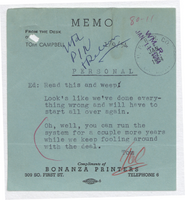
Memo from Thomas A. Campbell (Las Vegas) after receiving a letter from Alan K. Browne (San Francisco), January 7, 1954
Date
Archival Collection
Description
The Las Vegas Valley Water District needed a recognized financial consultant to help them with their bond issue
Text
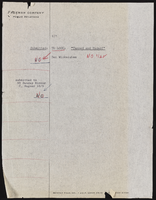
Al Freeman, Sands Hotel Advertising and Promotion Director: correspondence
Date
Archival Collection
Description
Series IV. Al Freeman Correspondence
Text
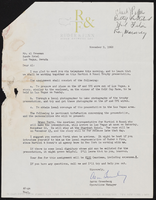
Gold Cup Races: Sands Hotel correspondence and photographs
Date
Archival Collection
Description
Series I. General
Sands Hotel and Casino
Mixed Content
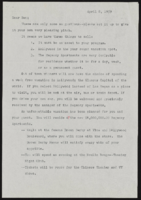
Sands Hotel correspondence
Date
Archival Collection
Description
Series I. General
Sands Hotel and Casino
Mixed Content
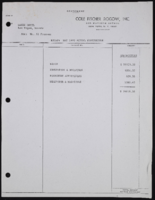
Advertising Budget Analysis: documents
Date
Archival Collection
Description
Series I. General
Sands Hotel and Casino
Text
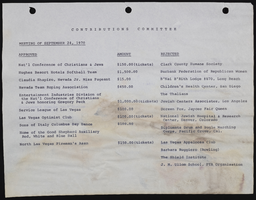
Sands Hotel Contributions Committee records
Date
Archival Collection
Description
Series I. General
Text
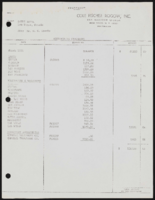

Nightlife 1990: set design notes, scenery schedule, contracts
Date
Archival Collection
Description
Series IV. Professional work outside the United States: show production materials -- Europe, Mexico, and the Bahamas shows: production materials -- Princess Hotel Grand Bahama Island
Princess Hotel (Grand Bahamas)
Mixed Content
